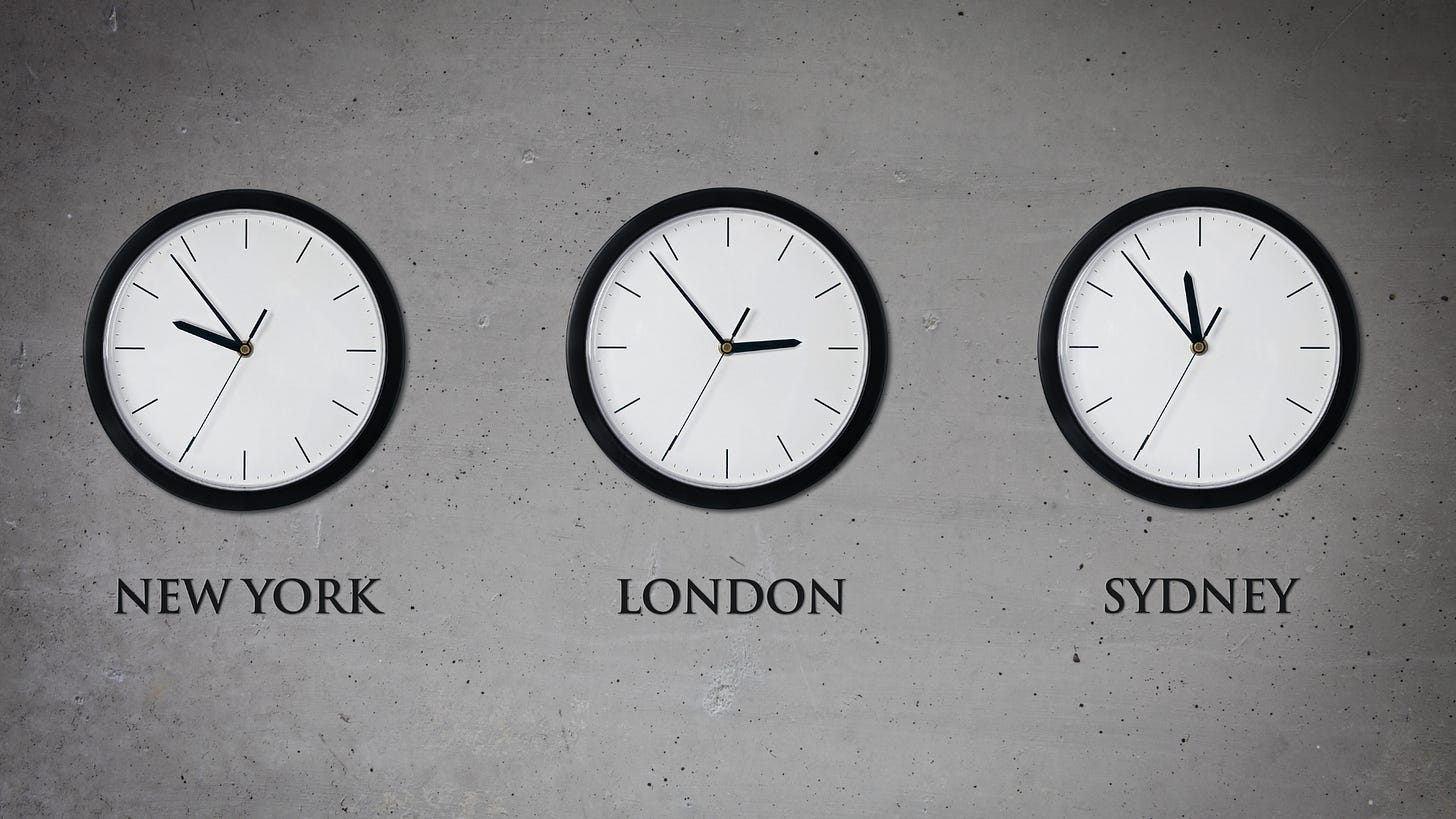Essential Vocabulary for Discussing Time Zones
Navigating the World Clock
When we talk to people in different countries, we often need to talk about time zones. This is very important if you are planning a trip or need to have a meeting with someone far away.
The Idea of Time
The world uses a main time called UTC (Coordinated Universal Time). You can think of this as the ‘zero point’ for time. Most other places are a certain number of hours different from UTC. This difference is called the time difference.
For example, if it is 12:00 (noon) in the UTC zone, and you are in a place that is UTC+2, it means your time is two hours ahead. So, it is 14:00 (2 p.m.) where you are.
If you are in a UTC-5 zone, your time is five hours behind UTC. So, it is 7:00 (7 a.m.) where you are.
When you travel east, the time usually moves forward. When you travel west, the time usually moves back.
A Special Time: Summer Time
Some countries use Daylight Saving Time (DST), which we often call Summer Time here in the UK. This means they change their clocks by one hour when the weather gets warmer.
In the spring, they put the clock forward one hour (more daylight in the evening).
In the autumn, they put the clock back one hour (returning to standard time).
It is always important to check if a country uses Summer Time, because it changes the time difference!
Watch this…
Planning Meetings
If you need to arrange a call with someone in another country, you must find a good time for both of you.
Imagine you are in London (UTC) and your colleague is in New York (UTC-5). If you want to talk at 15:00 (3 p.m.) in London, you need to calculate the time in New York. New York is five hours behind, so it will be 10:00 (10 a.m.) there.
A good way to stop people getting confused is to say the time for both places: “Let’s meet at 10 a.m. in New York, which is 3 p.m. in London.” This helps to avoid mistakes.
If you fly to a place with a very different time, you might feel jet lag—that tired feeling when your body is confused about the time.
Knowing these words helps you speak clearly about time and makes planning much easier!
Watch this for more understanding…
📚 Vocabulary Recap
Time Zones: Areas that use the same time.
UTC: The main, global time (like the starting point).
Time Difference: How many hours one place is ahead or behind another.
Ahead / Forward: Later in time (e.g., London is ahead of New York).
Behind / Back: Earlier in time (e.g., New York is behind London).
Summer Time (DST): The one-hour clock change in warm months.
To put the clock forward / back: To change the time on the clock.
To arrange a call: To plan a time for a phone or video call.
To avoid mistakes: To stop errors from happening.
Jet Lag: Feeling tired after a long flight across many time zones.
🤔 Your Practice Question
A key point to remember is that it’s always safest to state the time for both places when planning an international call.
Imagine you are in London (UTC). You need to arrange a call with a colleague in New York (UTC-5) and another colleague in Mumbai (India), which is UTC+5:30.
If you decide the meeting will be at 16:00 (4 p.m.) in London, what time will it be for your colleagues in New York and Mumbai?
The Plan This Week
We will be focusing on a variety of aspects of time and time zones:
Tomorrow, we will take a deep dive into the word ‘coordination,’ bringing the different elements of a complex activity or system into a harmonious or efficient relationship!
BizPod on Wednesday will be a conversation about the confusion caused by changing the clocks! (Available to all readers)
Thursday, we will specifically target future time clauses, which are essential when you need to talk about one action that must happen before or at the same time as a future international event or meeting. They help establish the necessary order of actions.
Friday, we end the week with time-related idioms and common phrasal verbs that native speakers use every day.
Remember, only today and Wednesday are FREE posts. If you want to access the rest then you need to become a FULL/PAID subscriber. Now’s the time!


